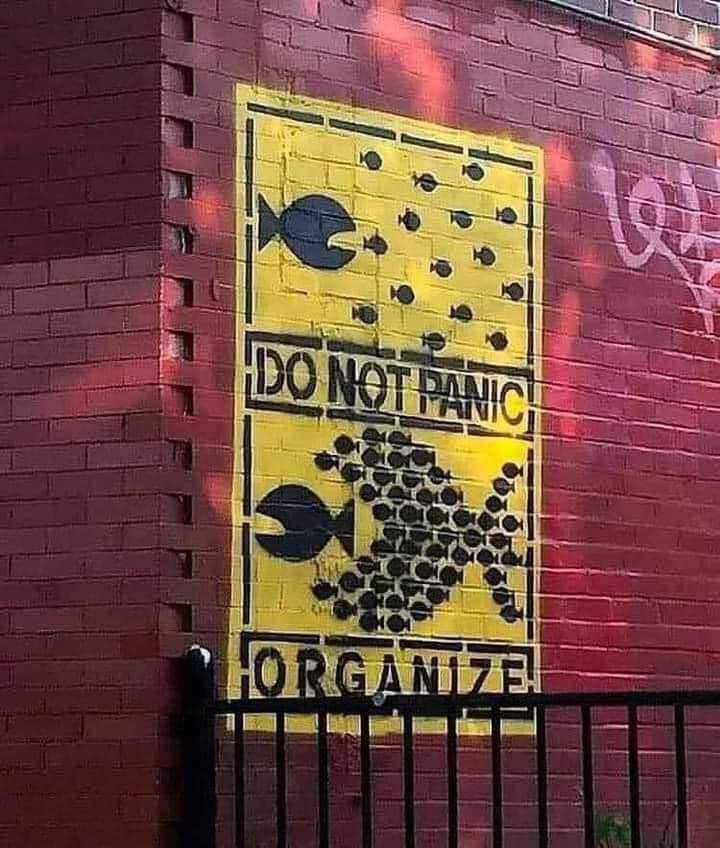The current path in “governance” of the #Fediverse is a few people and money, where other people live and create the value of our native #openweb path. This is oligarchy at best, if you think about this, is this what we won’t? How can we, actuary, tell what we won’t, if not what can we do about this?
A critical issue with #SocialWebFoundation is that they’re avoiding real change and challenge, which by default leads to a “safe path” of the commercialization of the #Fediverse. This #NGO path is about keeping a seat at the table, but history tells us it is always unproductive without engaging in deeper structural shifts.
The current lack of user and admin representation on the SWF board clearly signals elitism, which diminishes the collaborative, grassroots potential for native decentralized networks of “governance”. Which without this, we move to a corporate entrenchment rather than fostering the liberating potential of the #openweb we have spent the last 5 years building.
One potential solution is embracing #openprocess, backed by activism, as a way forward. While it may be an uncomfortable path for the wannabe establishment, this path is necessary to preserve the integrity of decentralized platforms and our reboot in the openweb space. Open governance and participatory, maintain transparency and avoid the top-down elitist structures currently being reinforced by the “common sense” #NGO default being imposed.
To start this conversation, we could actively push for deeper community engagement, cultivating dialogues around representation, and organizing inclusive spaces where server admins, users, and activists can voice concerns and meaningfully influence decision-making processes. However, a key challenge lies in whether it’s even worth pushing this path, as many within the establishment will block any understanding or discussion about the need for such structural shifts.
It’s worth reflecting on how many early #dotcons initially tried to be #openweb native, but found it impossible to reconcile with the profit-driven structures of dotcons. The same is happening now, and it’s important to ask: Can we forge a better path this time around? Clearly, the NGO-driven model isn’t the answer. Exploring frameworks like the #OGB (Open Governance Body) would provide a more transparent, accountable, and community-driven alternative, avoiding the pitfalls we’ve seen before.
You can find more details about the OGB here: Open Governance Body (OGB).
Question, where do you see the best opportunity to initiate these dialogues and get past the resistance to real change to walk the path we acturly are walking.

We need to compost, meany of the replies to these subjects as they to often exemplify the #stupidindividualism that plagues conversations. Instead of engaging in collective, systemic thinking, people fall back on dismissive, reactionary attitudes: “I’ll wait and see,” or “If they mess up, I’ll just ignore them.” This #blocking sidesteps the responsibility we have to shape the #Fediverse and #openweb decentralized networks. It’s not about waiting for corporations like #Meta to make a move or some #NGO driven entity to fail, it’s about organizing from the ground up and mediating these incursions before they can set deep roots.
I use the hashtag #stupidindividualism as it illustrates what the “ignoring” means, that damage has already been done. Once corporate influence is in place, it’s harder to reclaim grassroots paths, which is why we need collective action now, not after bad decisions have been made. The “I’ll just ignore them if I don’t like it” mindset is dangerously passive, and has a very bad history. It’s not good to hope the right decisions will be made by those in power while reserving judgment until it’s too late.
The #fediverse was never meant to bow unquestioned to the corporate agenda or chase explosive growth at the expense of native paths. The focus needs to be on building a diverse, sustainable, and resilient ecosystem from the bottom up. In this we can’t afford to stand by, waiting for others to decide our fate, if we do, we’ll end up entangled in the same corporate mess the #openweb was originally meant to avoid. If you have any thought, the time to act on this was yesterday, not keeping watching from the sidelines.
Please try not to be a prat about this, thanks.

3 thoughts on “Where do you see the opportunity for these dialogues”